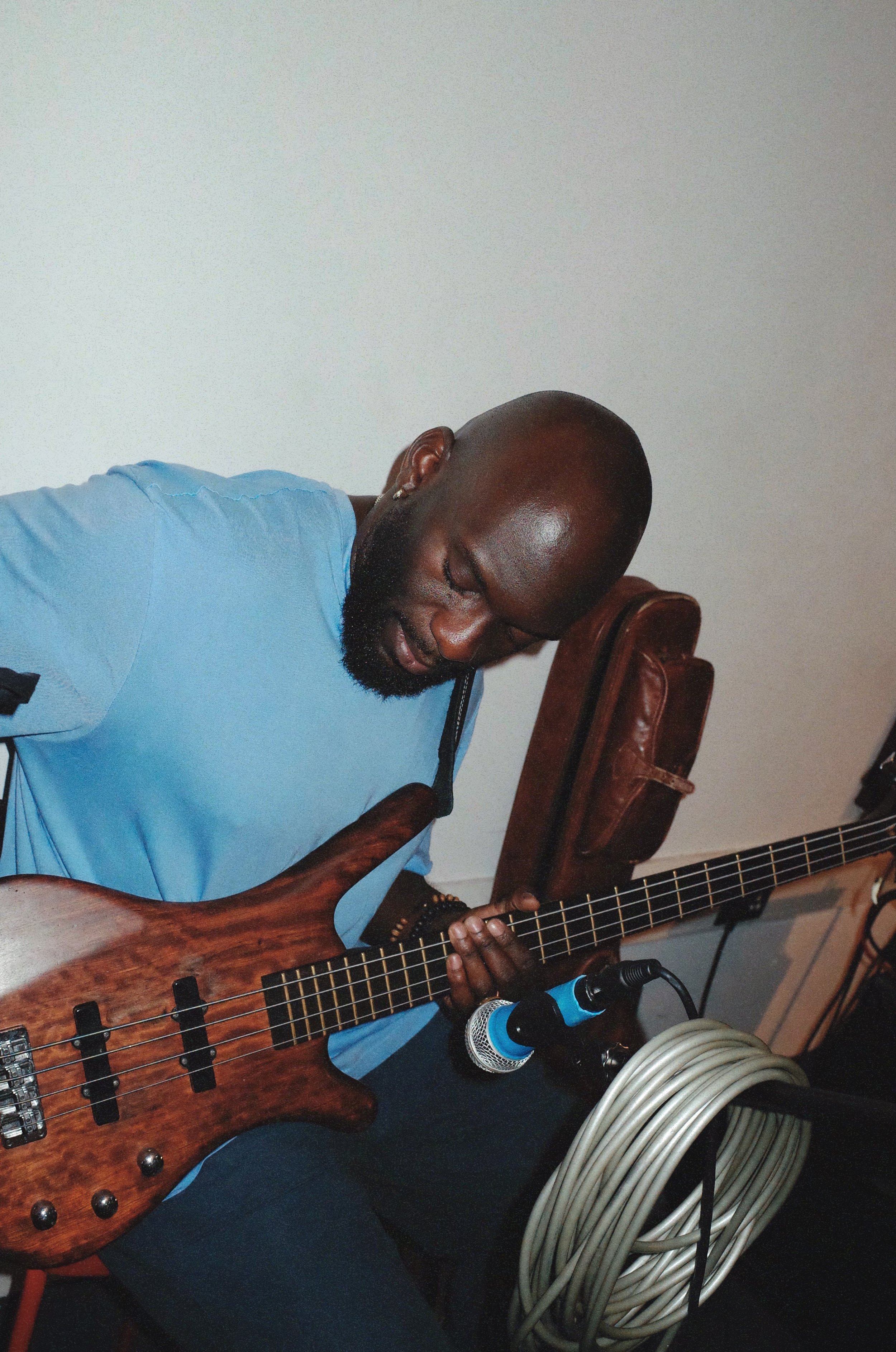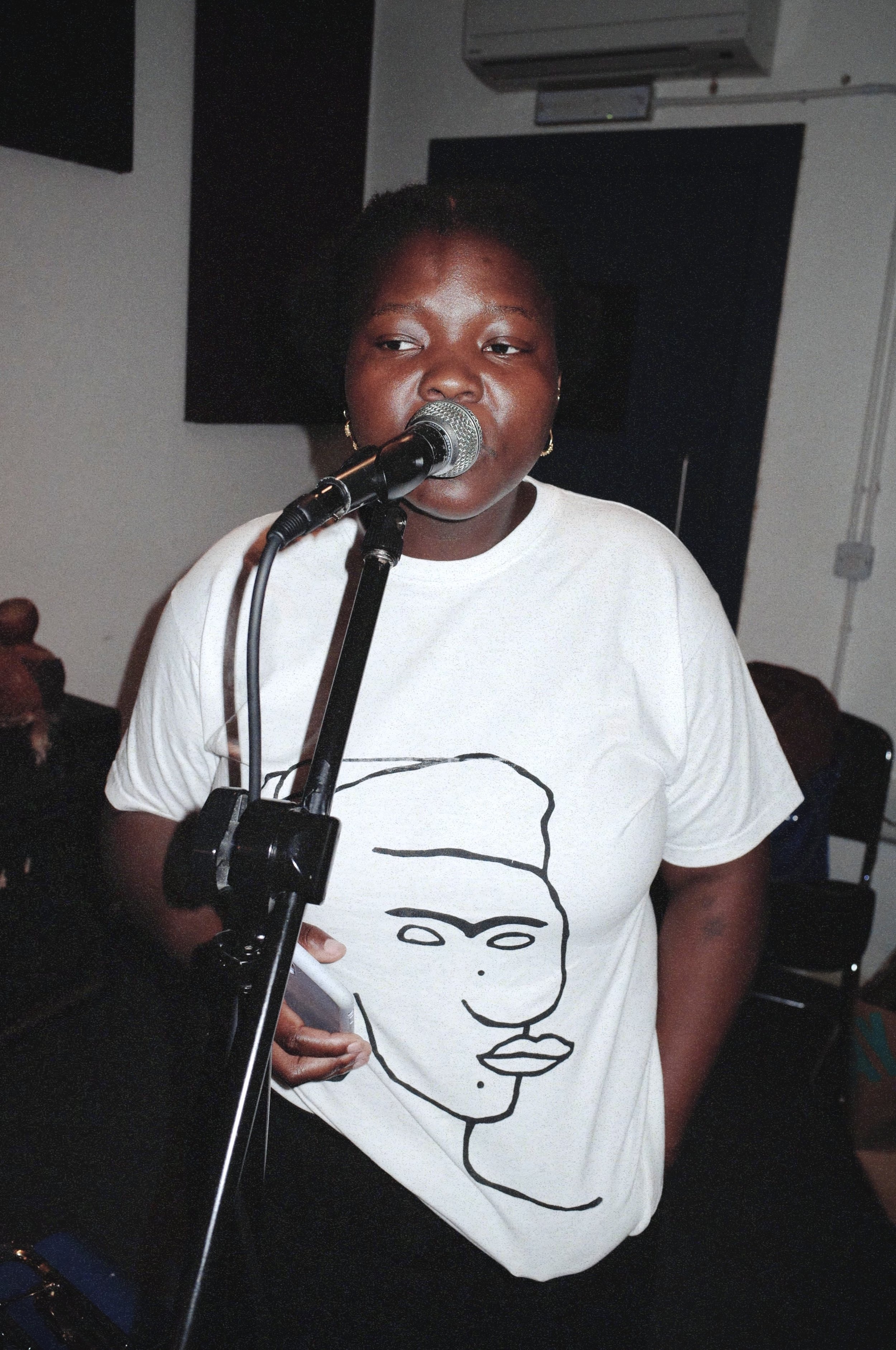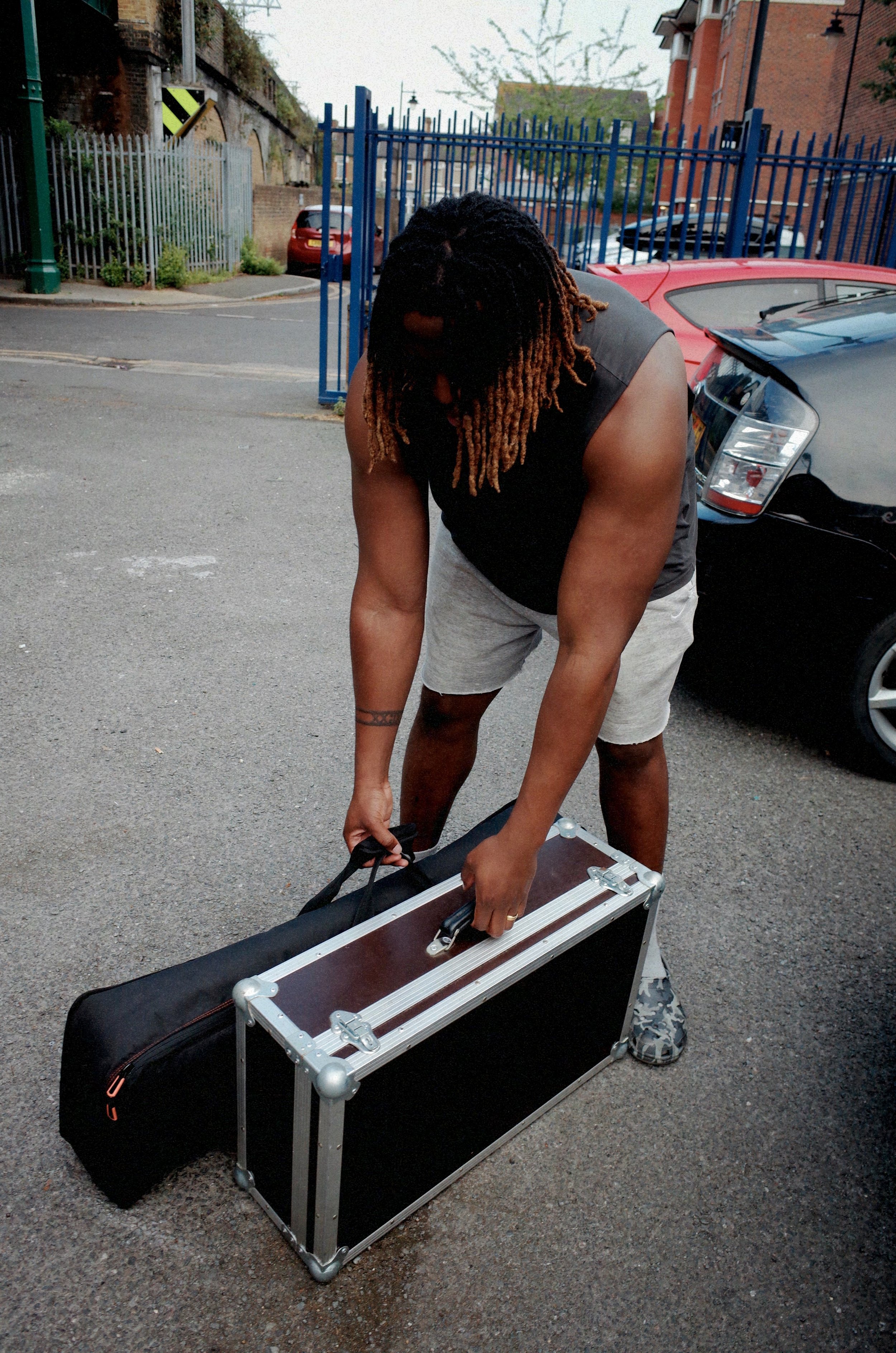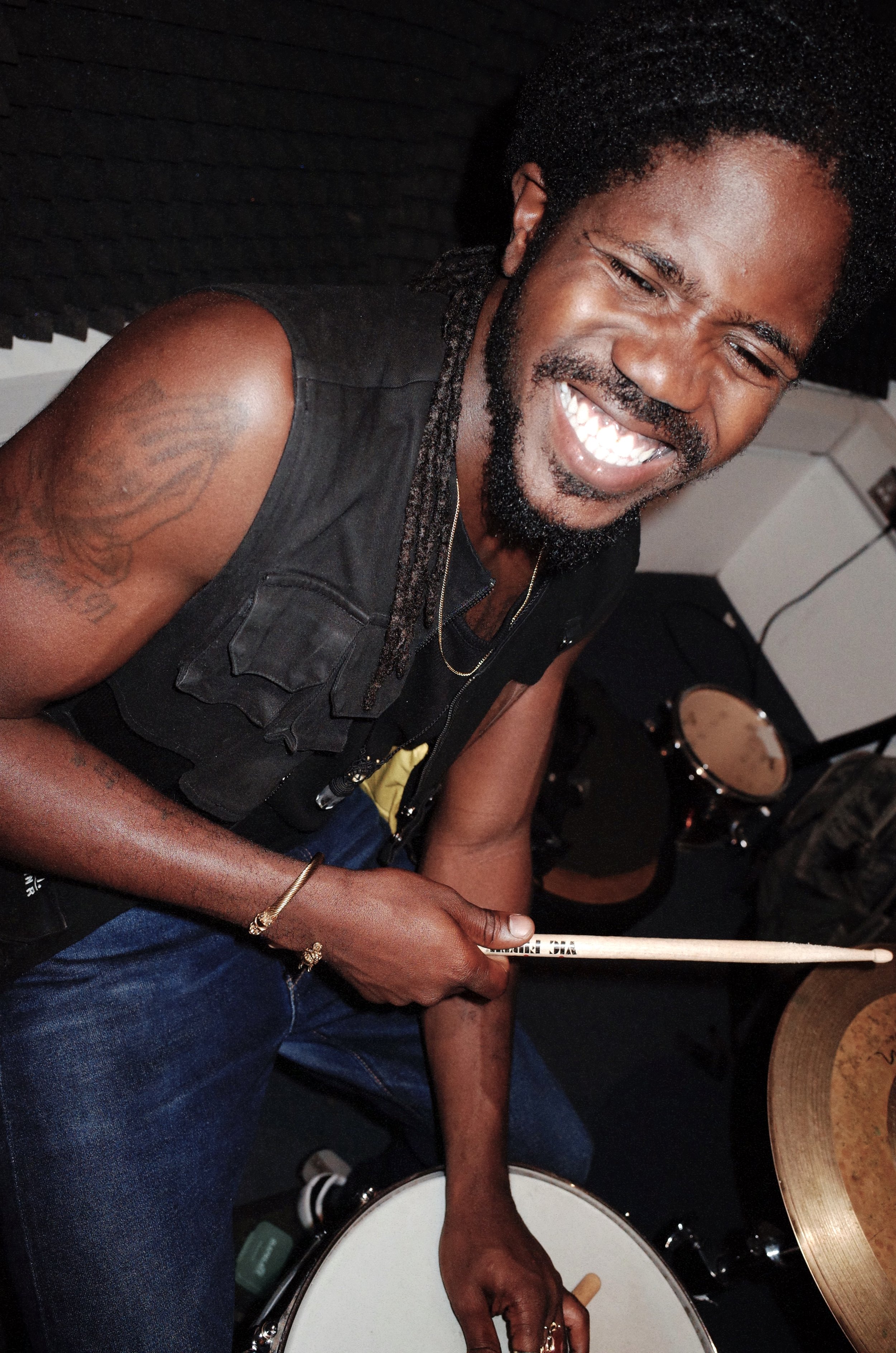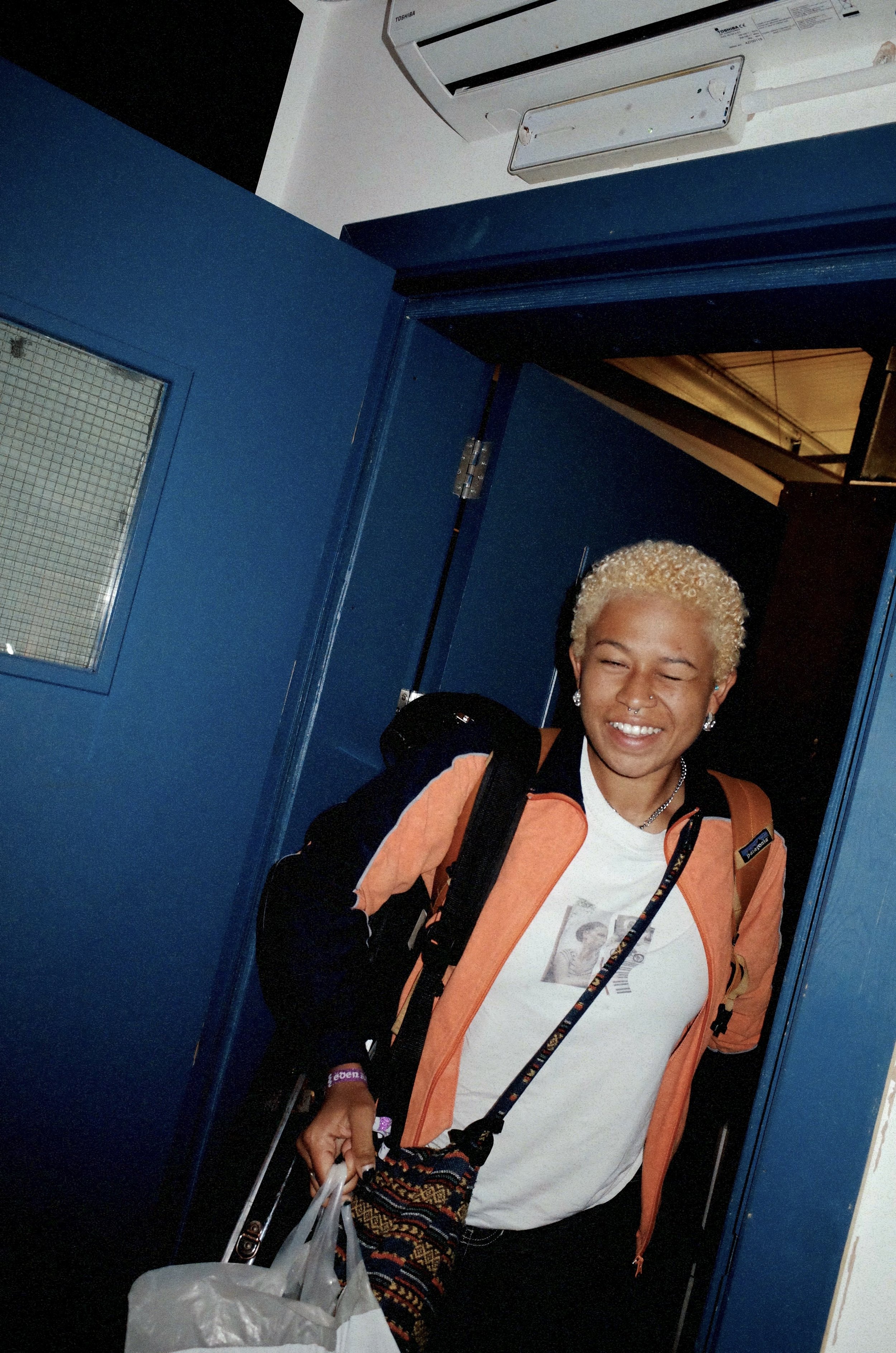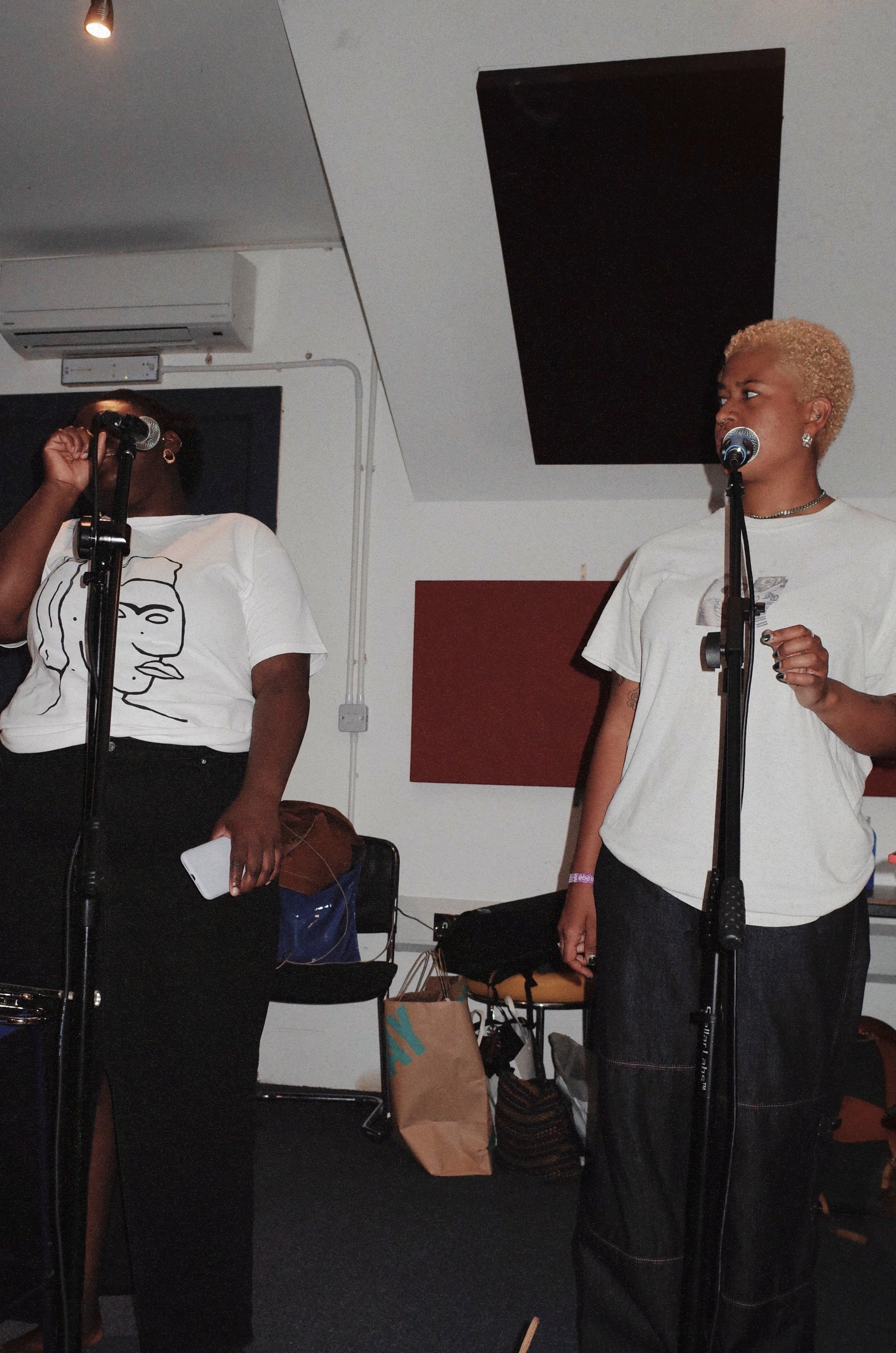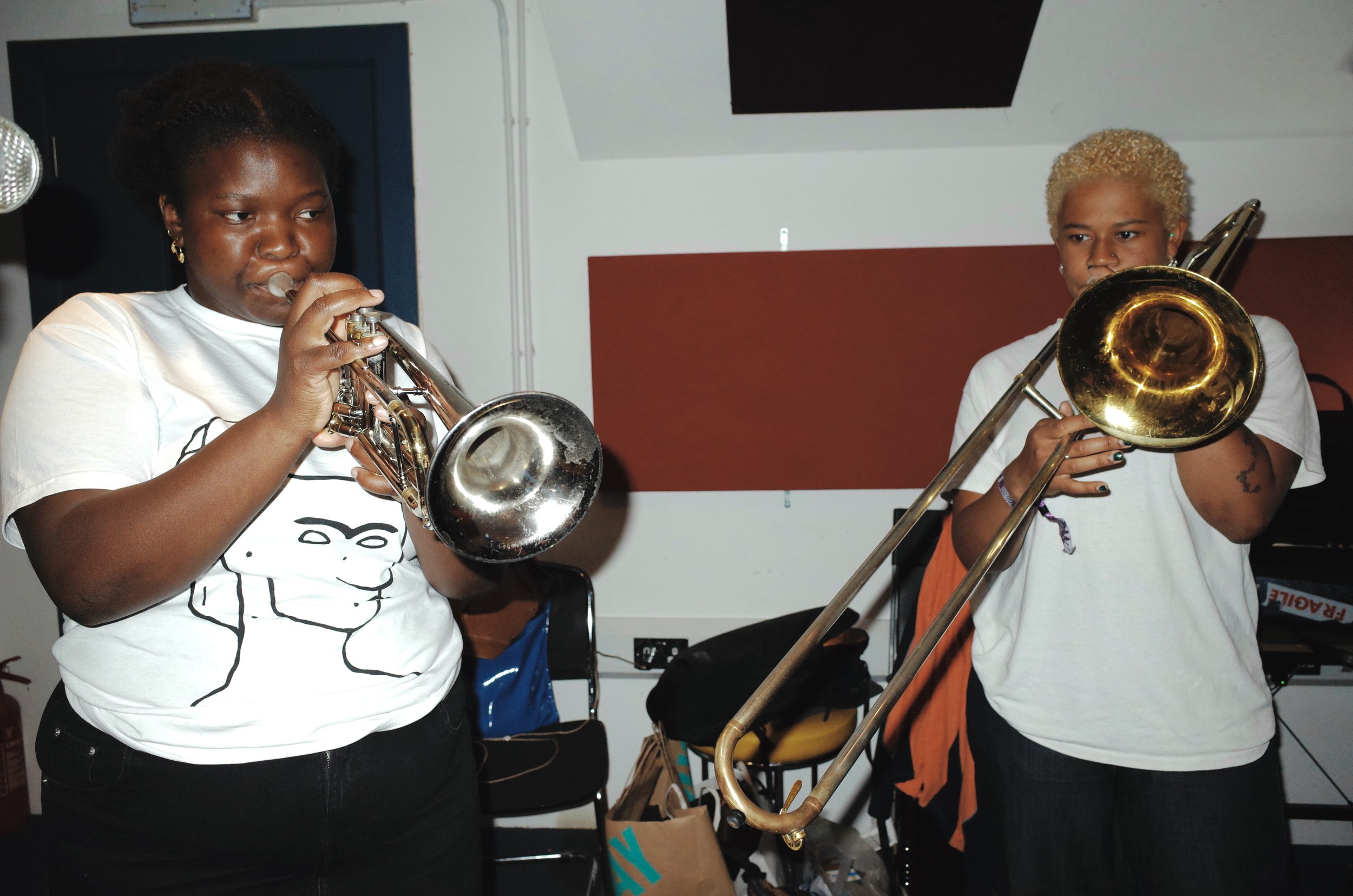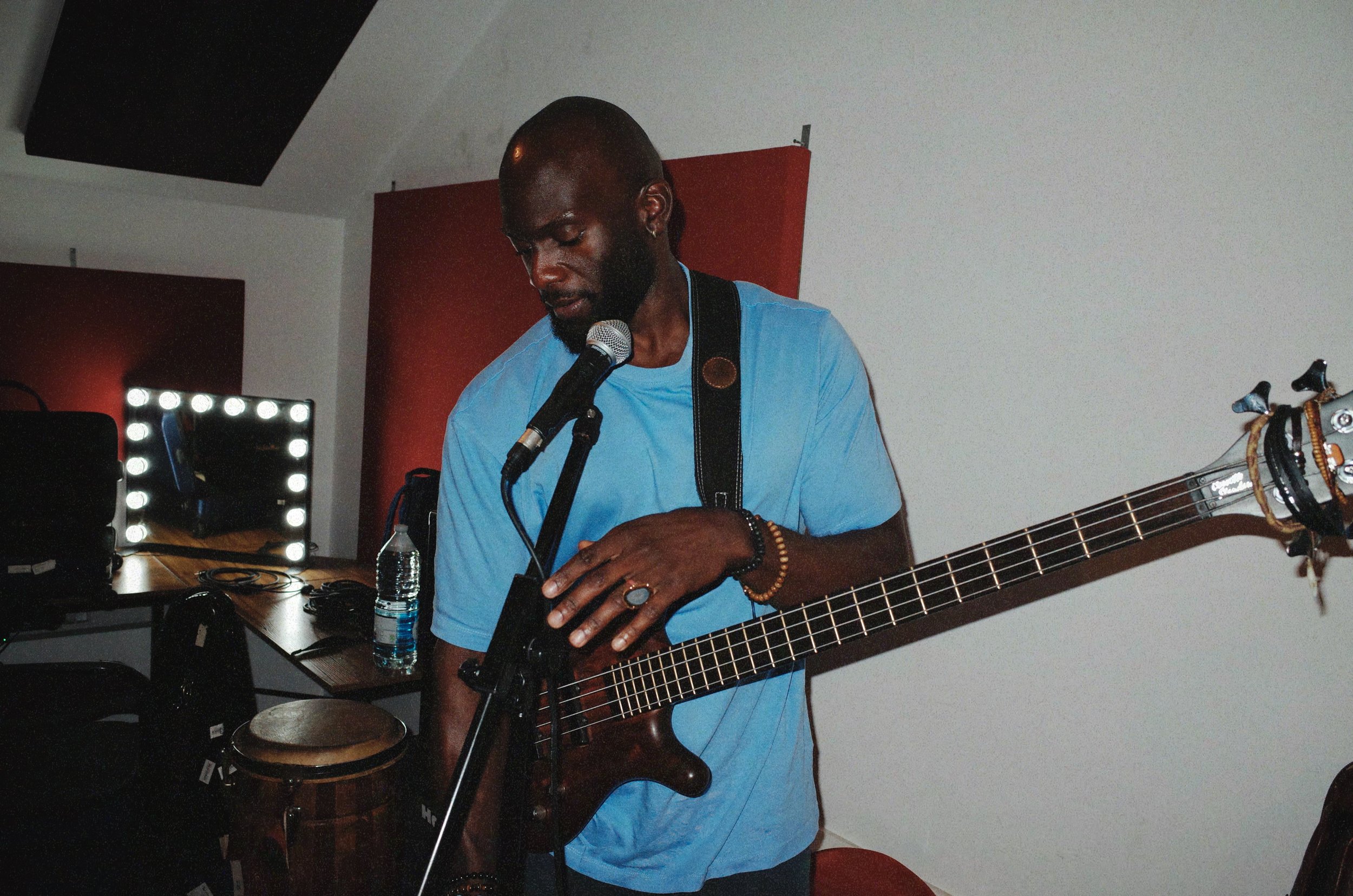Getting to know Kokoroko: The 7 Piece Afrobeat Jazz Band Built On Bonds
Image by Jesse Crankson
Images within by Onome
Words by Nicole Adjei
Kokoroko is a Jazz Afrobeat fusion band that bridges a cross-cultural and generational gap. Their concoction of afro-swing takes the seeds of an era gone to plant something anew. Their music feels reminiscent of 1960 and 70s Highlife. Like the Pan-African sound of this genre it is filled with rhythmic drums and percussions that invite your hips to the party, bass that puts the beat in your two-step, soulful saxophone, boisterous trombone; and enchanting vocals, but it speaks to this moment.
Abusey Junction, one of their biggest singles, is just one of many places Kokoroko takes you on their melodic journey. This unique blend of Jazz, Afrobeat, Highlife and funkadelic groove is a form of experimentation that is manifested from the blended cultural background that this group shares - a black diasporic background. These artists, both together and apart, are emblems of what music can look like when art is nurtured in loving homes, filled with instruments and what is possible when the arts are given the proper grounds to flourish in state schools and through the time-honoured diasporic tradition of music being nurtured within the faith.
The band are soon to be taking Southbank Centre by storm as the opening headline act for Christine and the Queens in Meltdown Festival. In between their busy rehearsals, we get to sit down with three of the seven members of Kokoroko, who prove themselves not only magnificently talented but comradely and ingeniously funny - vocalist Shelia, percussionist Onome and drums Ayo.
Nicole: I was looking at your Instagram, and you guys clearly have a good time touring. What came first, bandmates, or friendship?
The trio turned to each other before answering, and so the answer coming was sure to be one of sweet sentiments, but what was said was a truer show of friendship and comfort - banter.
Sheila: [to Onome] We were friends first. Well, I wouldn’t say we were friends, we worked together -
Onome: [jokingly] Sheila was my friend, but I wasn’t her friend.
Sheila: He says I was stoosh, but he was actually the stoosh one.
Onome: But we’ve become friends through being bandmates, really. I think over the years that we've met people at different stages in life. Maybe you have a little kinship with someone or you get along with them, but travelling with them and performing and doing all the nonsense we do created a friendship.
Nicole: As a group what roles has everyone settled into; who would be considered the lead enjoyment minister?
Ayo : [The] whole idea of um Kokoroko came from when these two were away in Kenya together, they came back and said they wanted to create a team of young musicians that would speak to a big part of us, our history and all of the heroes that have done before us. The rest of us all contribute in a creative way with writing and touring, whereas Onome and Sheila, they kind of handle the main things with my keeping up to date with labels managers reporting back to us…because you can't really have eight different people running this, that’s just too insane. But the music we do is fully collective. Everyone writes, everyone brings ideas.
Onome: But the enjoyment minister, as you asked, is this man here [points to Ayo]. Party doesn’t stop. We’ll have a 4 am lobby call and Ayo’s up at 1 am, like ‘I think might go to this party you know’. He’s got endless energy.
Ayo: [laughter] It’s just vibes man, I love music. I love music.
Image by Onome
Nicole: How would you say that your musical process has developed, and how has your bond as a band influenced this?
Onome: Someone brings an idea, and then we work it and then we bring it together and kind of all build on it. I think over the years, have started in many different ways. Certain times it’s on stage and you're playing together and something comes up -
Ayo: Or [during] sound checks.
Sheila: Or in the studio…
Onome: [And] people waking up and recording voice notes.
Nicole: Listening to your music the influences of African music from the 60s and 70s is not just undeniable, it’s beautifully honoured. What was your introduction to the sounds from that era?
Ayo: For me. I've been into music from a young age. And I grew up from the age of three in Nigeria. In Nigeria my parents actually performed in different churches and villages. Sometimes we would leave the city to go to these churches and see the drums being played. There was always a joyous atmosphere that I got to experience growing up, so when I moved to the UK, growing up in Kent, I was completely stripped away from that. I would have never thought I'd be able to find a project that allows me to put [in] that side of my like upbringing and those sounds I was hearing growing up.
Sheila: For me, it was much later, I was like, 14, and I had already started playing trumpet. I went to this summer school, and we ended up playing Fela Kuti… then I remember going home, being so excited about the music. I was like ‘Mum, h my gosh, have you heard that this person Fela Kuti?’ She was like, ‘Well, of course. Like, of course. What are you talking about? I grew up with his music.’ But I remember I remember that specific day dancing with my Mum and my brother. It was a really exciting moment for me.
Onome: Mum's cleaning music. My mom worked with lots of musicians, so they were in and out of our house. Especially West African musicians. We had loads of them in and out of our house growing up. So I was very blessed. And I think what you said about us and our Highlife influences is interesting because we’ve felt like we maybe never get it completely right. But we've let go of trying to really imitate or play it how it was played before and look at the energy: it was an energy of innovation, of creativity, of telling stories through songs, and just tried to take that part and add it into whatever we make.
And that's the magic there. I like thinking back to our culture, but not being deliberately like ‘Okay, let's make Highlife, Afrobeat’ because I think we do a disservice if we did that.
Nicole: Hopefully, you don’t hate this question too much. Having 8 people in a group, were you ever concerned that this is too many, or did you know this is the right move for you?
Onome: It is - too many!
Sheila: Definitely. Too many. Well now, as a seven-piece, the reason why we had that many people is because when you look at the history of like music of Afrobeat and Highlife, you can have up to 16 people – they’re massive bands [with] massive horn section, six piece horn section, two percussionist, there's two guitars, sometimes two basses. So it only made sense for us and in the retrospect of Afrobeat and Highlife, we’re actually quite a small band.
Nicole: How has preparing to perform at the Southbank Centre been?
Ayo: We're looking forward to it. We've been in more of a creative zone just writing music but we're also looking forward to performing in London our first performance this year in the UK.
Nicole: Is there anything that you guys want to share about what you're doing next?
Sheila: Yeah, we just finished working on the remix project for the last album. It will be coming out later in the year. I think we're excited about that. We literally just received it about 10 minutes ago.
We haven't listened to it in quite a while so very excited to hear it with speakers that we have here. I think it's gonna be exciting, and honestly, it's I think it's very out there.
Nicole: In 20, 30 years from now, what would you hope to remember about this time that you’ve shared as a group
Ayo: For me, music has always been like a timestamp. What we do is very reflective of the day we're living in, so in a way, I feel like I'm just going to be happy that we just have had a chance to express ourselves through our musical gifts.
Sheila: Doing a reunion tour or something. I would essentially just be proud of what we've done and having something to show to our kids, grandkids.
Onome: We get a whole lot of jokes from each other as well. When you see people past midnight on a regular basis, you do build up a load of stories, innit. So we're gonna remember each other for those funny moments.
Kokoroko is performing as part of The Southbank Centre’s Meltdown Festival
Future gig dates are on their site: www.kokorokomusic.co.uk


